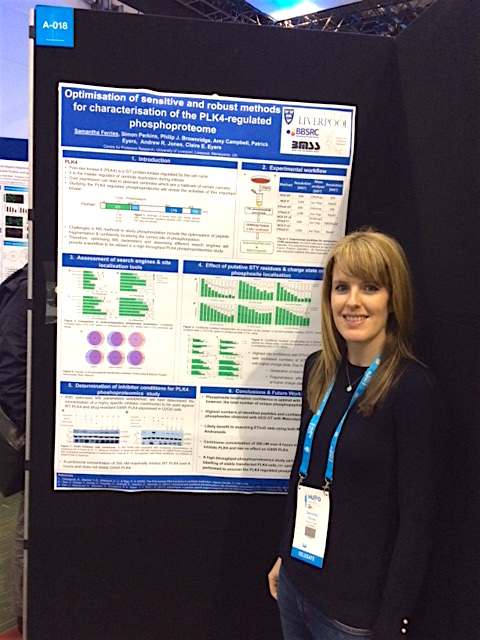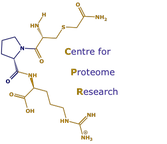Postcard from HUPO

The 16th annual HUPO conference was held in Dublin, Ireland in September and brought together many of the world leaders utilising mass spectrometry to advance human proteomics studies. This included a range of excellent plenary talks by speakers such as Matthias Uhlen who discussed the ambitious Human Protein Atlas; a project designed to map all the human proteins using the integration of multiple omics technologies. It was inspiring to hear how individual projects on human genes/transcripts/proteins can tie together to create an overall view of the human proteome. Matthias Mann discussed how new techniques are being applied in his laboratory to overcome challenges such as studying cell signalling in vivo and analysing the plasma proteome. Of particular interest in this talk was a real-life example of how proteomics can be used to help people directly. MS analysis of tumour cells from a terminally ill woman identified a significantly up-regulated protein and from this, a possible drug treatment was identified which could be used to treat the patient. Understanding how mass spectrometry could be used in a clinical setting was both exciting and thought-provoking.
My personal highlight of the conference was the ‘Meet the Expert’ session which provided students and early career researchers the opportunity to speak informally with established leaders in mass spectrometry. I attended a session with Professor Sabine Bahn, an expert Consultant psychiatrist who also runs her own research group at the University of Cambridge developing molecular diagnostics for mental health disorders such as schizophrenia and which has also led to successful business ventures. Having the opportunity to speak with Sabine was a great privilege and allowed us to get an insight in to her approach to her work and what she believes it takes to be successful.
I was also given the opportunity to present a poster on my PhD work titled ‘Optimisation of sensitive and robust methods for characterisation of the PLK4-regulated phosphoproteome’. Discussing my work with others was a rewarding experience especially as the nature of my work put me in a position to offer advice to other students on the optimal strategies for high-throughput phosphoproteomics studies using an Orbitrap Fusion. The poster sessions were also a great opportunity to discuss proteomics with other students and see the different approaches taken by different research groups to address similar questions. It was particularly useful to see the various ways in which visualisation tools had been applied to large datasets to show data very clearly for a poster format.
Dublin itself was an excellent location to host HUPO and the conference centre itself was situated well amongst the river Liffey and many bars and restaurants. A lot of Guinness was consumed during the week, including at the HUPO gala evening held at the Guinness Storehouse. This offered 360° views of Dublin as well as providing Irish cuisine and of course, Irish entertainment.
Overall, attending the HUPO conference was a very rewarding experience, offering me a lot of inspiration and motivation as I start the final year of my PhD.
